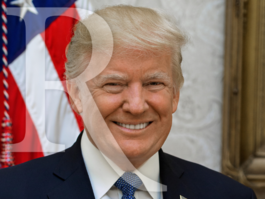Obama Tramples on High Ideals of America, Fuels Black Lives Matter Racism
A Commentary By Charles Hurt
There can be no dispute that Barack Obama was forced to wade through unprecedented bigotry in his speedy ascent to the most powerful perch in the world. His predecessor, George W. Bush, called it the “soft bigotry of low expectations.”
A street hustler with sterling academic bona fides — which are always suspect — Mr. Obama had never accomplished a single thing as a politician when he decided to run for president. In his 2008 campaign, he was most admired for not voting to invade Iraq — a vote that took place years before he joined the U.S. Senate.
Yet not even one year into his presidency, and while directing two hot wars, Mr. Obama was awarded the Nobel Peace Prize “for his extraordinary efforts to strengthen international diplomacy between peoples.” He was heralded in particular for his unparalleled success in the Muslim world.
Indeed, the soft bigotry of low expectations exists nowhere so virulently as in the whitest confines of Nordic lands and elite American academia.
The insultingly low bar set for President Obama, however, gave even those American voters who could not support his candidacy or policies some glimmer of hope.
Because he was half-black, half-white, Mr. Obama had more credibility than any president ever elected in American history to be the balm that would finally salve the festering wounds that still divided some Americans 150 years after the end of slavery.
The vast majority of Americans had moved on from those noxious divisions, but a troubling number of fellow Americans remained outside of the American dream, mired in racism — either real or perceived.
As the son of a black father from Kenya and a white mother from Kansas, Mr. Obama did not descend from slavery or emerge from Jim Crow laws or the American Civil Rights Movement. Still, his election in 2008 was a historic moment, a turning point.
It was the dawn of a new black patriotism in America. The street artist at the local market who had devoted his talents to painting haunting scenes from Billie Holiday’s “Strange Fruit” began painting American flags on wooden pallets.
“Land of the free, home of the brave” finally supplanted “Southern trees bear a strange fruit / Blood on the leaves and blood at the root / Black bodies swingin’ in the Southern breeze / Strange fruit hangin’ from the poplar trees.”
It is now nearly eight years on. By no measure can anyone argue that things are better. No one is trying to say that promises were kept or that people have been made whole.
Racially fueled riots have not been this common in nearly a half-century. The “quiet riot” Mr. Obama talked about early on has become a deafening roar of hatred and discontent.
White police officers are openly targeted for attack and assassination. Black men keep dying. As gruesomely and graphically as anything Billie Holiday could have ever dreamed. That moment eight years ago of hope and truth and honesty and healing has curdled into something toxic and evil and dishonest. Good people are stricken with fear and suspicion.
Again and again and again, this president, who was so uniquely positioned with the credibility to do more than any president in history to quell the discord and unify America, has done the exact opposite.
Instead of waiting for blind justice to work, he repeatedly jumps to prejudicial — and usually wrong — conclusions.
Police are stupid; somebody looks like him; things were racially motivated; let’s go after guns. Every opportunity he has had to be the honest broker and reach for the great principles and high ideals that unite America, Mr. Obama has instead chosen partisan divisiveness.
If he were a real man, if he were a leader or statesman or one ounce of the constitutional scholar he claims to be, Mr. Obama would have already hotly condemned and denounced the Black Lives Matter movement as the racist and anti-American thing that it is.
In America, people are to be fairly and equally judged by the content of their character, not the color of their skin, he would have told black activists. As bad as it may be to fail to live up to those ideals, it is so much worse to not even try.
Instead, Mr. Obama chickened out. He scrambled for the easy way out. Shirked his duties. He blew his moment to defend the constitution and stand with the likes of Martin Luther King Jr.
His presidency — for all the hope it began with — has been nothing short of an American catastrophe.
• Charles Hurt can be reached at charleshurt@live.com; follow him on Twitter via @charleshurt.
See Other Political Commentary by Charles Hurt.
See Other Political Commentary.
Views expressed in this column are those of the author, not those of Rasmussen Reports. Comments about this content should be directed to the author or syndicate.
Rasmussen Reports is a media company specializing in the collection, publication and distribution of public opinion information.
We conduct public opinion polls on a variety of topics to inform our audience on events in the news and other topics of interest. To ensure editorial control and independence, we pay for the polls ourselves and generate revenue through the sale of subscriptions, sponsorships, and advertising. Nightly polling on politics, business and lifestyle topics provides the content to update the Rasmussen Reports web site many times each day. If it's in the news, it's in our polls. Additionally, the data drives a daily update newsletter and various media outlets across the country.
Some information, including the Rasmussen Reports daily Presidential Tracking Poll and commentaries are available for free to the general public. Subscriptions are available for $4.95 a month or 34.95 a year that provide subscribers with exclusive access to more than 20 stories per week on upcoming elections, consumer confidence, and issues that affect us all. For those who are really into the numbers, Platinum Members can review demographic crosstabs and a full history of our data.
To learn more about our methodology, click here.



